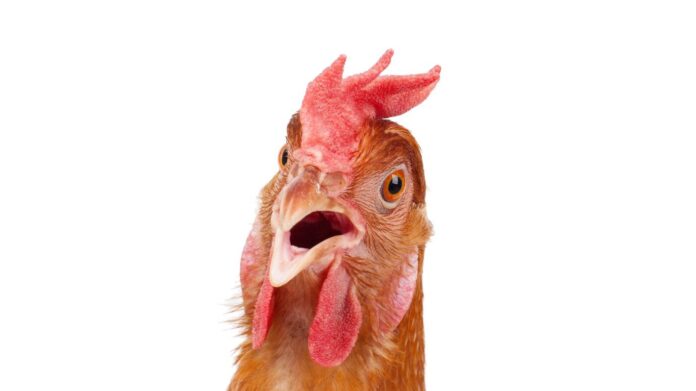Want a job that does not require expensive qualifications, will keep you fit, is outside the normal 9 to 5 and pays above the minimum wage?
Catching chickens in New Plymouth for Tegel may be your bag.
Tegel is advertising for people to join its team collecting chickens to bring to the plant. But there are a few catches.
The work is physically demanding, and core strength is important (“this role requires a lot of bending”). The job would suit someone with a farming sway who does not mind getting a bit dirty, and the hours are also potentially quite unsocial, starting either at 7.30pm, or 5am.
READ MORE:
* Push to use ‘game-changer’ testing kit in NZ and Tonga to prevent Omicron spread and avoid mass self-isolation of workers
* Dismay for NZ tourism industry as Australia opens its border
* Silver Fern Farms lifts minimum pay to attract and retain staff
A job advertisement for a chicken catcher posted by a recruitment company in 2020 said it required constant lifting and bending for the entire duration of the shift, in a dusty, smelly environment with “dim to dark lighting”. It involved travelling to different farms catching and loading live chickens into transport cages.
Another company currently looking for five chicken catchers was offering pay between $21 and $24 an hour, depending on experience, and an overtime bonus.
123RF
Catching chickens in New Plymouth for Tegel may be your bag.
It has always been a struggle to fill some agricultural jobs, with every perk offset by potential negatives such as isolation, long hours, and exhausting physical work.
Now Covid border closures have exacerbated the problem, keeping out crucial overseas workers and worsening a labour shortage throughout the country. The dairy industry alone has a shortfall of about 4000 to 6000 workers, says DairyNZ chief executive Tim Mackle.
So companies have had to get creative to attract people to the jobs they might not have considered.
For the first time, Silver Fern Farms is advertising two fly-in, fly-out meat processing jobs, more commonly associated with the Australian mining industry – one in Timaru, and one in the South Otago town of Balclutha, which is also short 85 people to work in a new supermarket.
The seasonal jobs are only open to New Zealand residents or citizens, and pay a minimum starting rate of $24 an hour.
“Silver Fern Farms Finegand in Balclutha, South Otago, has opportunities now for enthusiastic people looking to commit to a fly in / fly out work arrangement or even a full relocation to the rural gem that is South Otago,” the job advert says.
“If your family is happy where they are but job opportunities are limited, or you’re earning minimum wage, why not give meat processing a try?”
People choosing to fly in, fly out would stay for four weeks, working Monday to Friday and overtime some Saturday mornings, then return home for a week off.
Accommodation is provided, at a cost of about $150 a week.
People wanting to shift permanently would get support from the company with moving expenses and the search for accommodation.
“The South Otago region has great schools, beautiful coastlines, rivers, fruit, wine, Jimmy’s pies, cheese rolls – in fact, you name it, they’ve got it.” the advert says.
John Bisset/Stuff
Silver Fern Farms is extolling South Otago’s charms, and offering to fly workers in from other parts of the country.
“We are having one of our most challenging years to date for accessing skilled labour and are presently about 550 people short across our processing network,” says Matt Ballard, Silver Fern Farms’ general manager of people.
Earlier this month DairyNZ launched a campaign to “connect dairy farmers and New Zealanders”, aiming to attract people to the industry. One of the selling points is dairy “as a career and a lifestyle”, with early starts but also early finishes.
Sirma Karapeeva, chief executive of the Meat Industry Association, says the industry has an acute worker shortage, with an extra 2000 workers needed.
Very low unemployment means getting people to relocate is not easy, she says.
“This is despite the sector offering on-job training, strong career paths and very competitive salaries, in many cases above the median wage. Traditionally the labour need would be met by recruiting seasonal staff from the Pacific Islands, but that too is proving challenging due to Covid-19.”
Red meat processors can not run plants at full capacity without adequate labour, which means less work available for people, less ability to add value to products, and fewer products going to market.
Meat processor Alliance Group is trying to fill 200 to 300 positions as it heads into its peak production period.
“The people that have been attracted locally are still attracted, it’s more that we don’t have the same base to pull from,” spokeswoman Renee Walker says.
“We’re having to get creative about how we do make up the shortfall in numbers that we can recruit usually.”
The company launched a referral scheme this week paying a $600 one-off incentive to existing employees who referred someone for a seasonal plant-based role, if the new hire stayed for a minimum period.
Silver Fern Farms has a similar programme, ‘Muster your Mates’, rewarding existing staff for successfully referring new employees.
Silver Fern Farms increased its minimum wage to $24 per hour last year, and Alliance has increased the minimum wage it pays to $24.50 an hour.
It is also trying to attract and retain university students, who return home to the regions for university holidays and work at the local meat plant as a summer job, and employs people from the Cook Islands.
Credit: Source link










